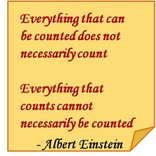- The flow of knowledge around commercial qualitative research has for a long time been oral tradition. Researchers learn by observing and practicing what they observe on the job.
- The industry has very relatively fewer entry barriers. Researchers could have a background in any of the social sciences or management disciplines at the least. At the worst it could be field investigators graduating as interviewers and moving on to handling entire research projects.
- As a discipline it is open, flexible in its approach and draws from many related fields and most importantly is evolving continuously. An eclectic approach like that makes it a complex task to commit to paper the tenets and the boundaries that define this discipline.
With the result that many a times – what is often a complex and well-thought out task gets reduced to this widely held belief
‘After all what is scientific about talking to a bunch of women over coffee and cookies and how difficult can it be’
A good qual researcher over time, acquires an intense understanding of two worlds – one being that of the consumer and the other that of the client. Her immersion in these two worlds results in her becoming fluent in the language and culture of both these domains.
And the skill is not just in having an external awareness of this expectation. It is being aware of it and internalizing it till it becomes second nature. It is holding both these positions simultaneously and constantly moving between them
This constant shift of perspectives keeps happening within the mind of the researcher ALL the time.
From the time she is designing research – thinking about how best the clients need for information would be met keeping in mind the kind of the consumer segment being targeted.
To the info gathering stage – where mostly in a matter of 2 hours – she needs to get a bunch of strangers in a room not only comfortable with her but also with each other –enough to create an open and safe environment for them to air their views and respect the differences and yet not so comfortable that they digress to talking about whatever they feel like.
She has her mind (If I may put it like that) split into many fragments. A part of it is constantly evaluating how much headway she has made vis-à-vis what she has set out to achieve. Through another she has her eye on who amongst her group of eight have / haven’t had enough air time. Who dominates and needs to be managed, who needs to be encouraged, how to break the cycle of group consensus when she sees evidence of that or how to deal with spontaneous emotional outbursts on part of a respondent without losing time and yet not making the respondent feel alienated. She has her ear finely tuned in to catch subtle statements made by respondents that lie just outside the scope of research but could throw light on a significant part of the information puzzle if explored in detail. She makes a judgment call about which of these threads to explore and at the cost of what, which ones to ignore and what she could lose as a result. Then there could be chits being sent in from the client viewing room prodding her explore something. Many a times it could be a topic that has been discussed and closed. How does one re-visit it without losing time? Sometimes it involves making a snap decision to let it pass. And most of all while she is constantly evaluating her alternatives – she needs to make sure that she keeps her bunch of respondents perked up through the two hours so that they don’t lose interest in the discussion and start thinking about their kids back home or what’s to be made for dinner.
qualitative research, qualitative researcher, on being a qualitative researcher

1 comment:
good post... for me above all, a good qualitative researcher makes that leap from data to insight - and not on thin air but based on a combination of analysis and intuition (even though that is considered unacceptable) - those eureka moments make it all worth it for me personally...
and speaking of 'anyone can do quali research', I often encounter it myself and wonder about it... is it that number somehow make a piece of data "serious" and more rigorous? and to what extent are we quali researchers responsible for this belief to be fostered? how often do we see so-called qualitative researchers happy to be mere moderators...
I had written about this a while ago on my mindspace blog - something about 'more than eyes and ear' (to lazy to find the link) - but pls read it!
Post a Comment